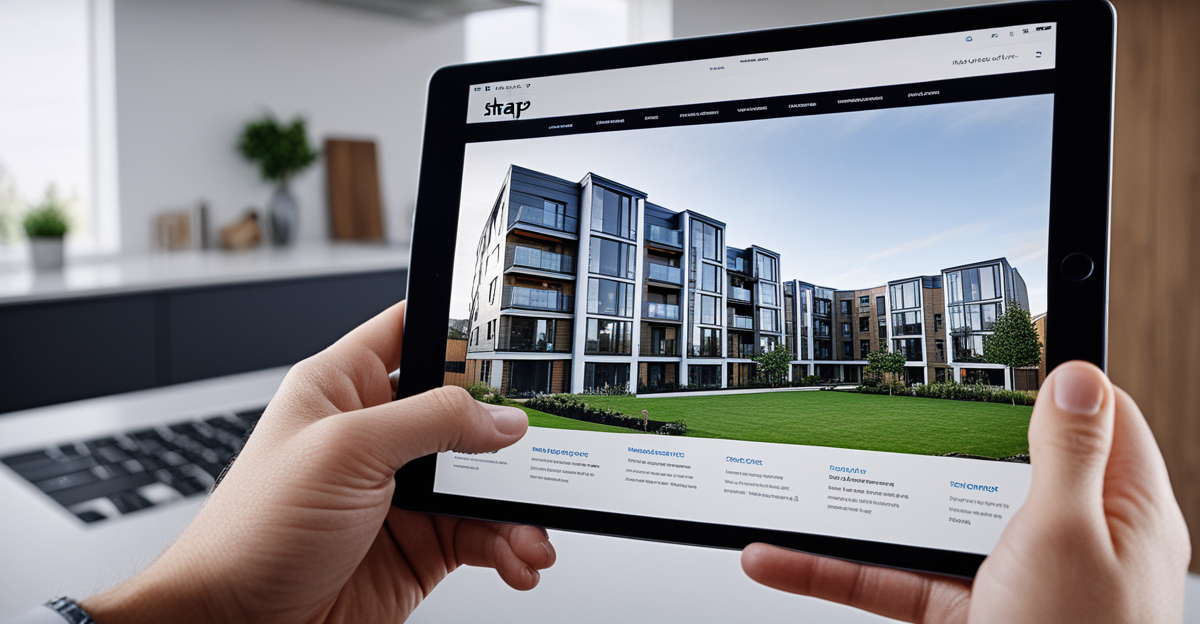Overview of Technology in Real Estate Investments
The evolution of technology in the real estate sector has dramatically altered how investments are approached and managed. From the digitalisation of property listings to advanced real estate investing tools, technology is now at the forefront of industry innovation. In the UK real estate market, key trends such as virtual reality property tours and automated valuation models are shaping the future of investments. These technologies offer investors more accurate data and comprehensive insights.
One major advancement is in technology in real estate, which enhances investment strategies through improved data analysis and decision-making. Investors now have access to sophisticated platforms that enable them to analyse market trends and property values with precision, aiding them in making informed choices. By leveraging these technological tools, investors can identify lucrative opportunities and mitigate risks effectively.
Topic to read : How Can UK Real Estate Finance Evolve in a Changing Economy?
Additionally, technology in real estate is driving UK real estate trends, focusing on sustainability and efficiency. The integration of smart building technologies not only increases asset value but also aligns with the growing demand for eco-conscious investment options. As the UK market continues to evolve, technology will play a crucial role in transforming investment strategies and redefining property management practices.
Case Studies of Successful Technology Implementations
In recent years, technology in real estate has become an indispensable element of modern property investment strategies. Real-world examples illustrate how tech-driven initiatives enhance market operations and investment success. In the UK, a notable case is the integration of AI in real estate investments by leading agencies. These firms employ AI algorithms for property valuation and forecasting, which contribute to more precise investment analysis. This has not only increased their profitability but has also set a benchmark for success within the industry.
Also to discover : How Can Real Estate Influence Financial Trends in the UK?
Another compelling case is the use of blockchain technology to streamline real estate transactions. Through this innovation, a prominent UK-based firm significantly reduced transaction times and costs while enhancing security and transparency. The implementation of blockchain has addressed long-standing issues like fraud and information tampering, thereby improving trust in property exchanges.
Furthermore, proptech advancements such as proptech solutions in tenant management have revolutionized customer interactions. For instance, smart building integrations have seen a marked rise in tenant satisfaction and retention rates due to enhanced convenience and automated services.
These UK real estate examples collectively emphasize the value of embracing technology in reshaping investment landscapes, offering both challenges and tremendous opportunities for growth. By reviewing these case studies, stakeholders can learn valuable lessons on effectively integrating new technologies to achieve significant returns on investment.
Impact of Artificial Intelligence on Real Estate
The integration of artificial intelligence in the real estate sector has revolutionized how properties are evaluated and marketed. In property investment AI, algorithms analyse vast datasets to provide precise property valuation and predictions. This leads to more accurate assessments, supporting investors in making informed decisions.
AI in real estate applications have seen significant success in the UK market. For instance, firms using AI platforms for forecasting have reported improved investment analysis capabilities. These companies can identify trends and foresee market changes, giving them a competitive advantage. By accurately predicting property values, AI enables better risk management and investment strategies.
Beyond valuation and analysis, AI is enhancing property management and customer service. Chatbots and virtual assistants streamline tenant interactions, answering queries instantly and efficiently. This automation increases satisfaction rates, contributing to tenant retention and reducing management costs.
Real-world examples illustrate the tangible benefits of AI integration. A prominent UK agency adopted AI technologies to process and analyse real-time data, resulting in a marked reduction of manual tasks and improved decision-making speed. The successful adoption of these technologies has set a benchmark for others in the industry, showcasing the significant advantages AI can bring to real estate investments.
Blockchain and Real Estate Transactions
Blockchain technology offers transformative potential for real estate transactions, making them more transparent and secure. By decentralising record-keeping, blockchain reduces the risk of fraud and enhances trust in the property exchange process. In the UK, several firms have already adopted blockchain to streamline operations, eliminating the need for intermediaries and thus cutting down costs and processing time.
An excellent example is a notable transaction completed using blockchain, which not only saved time but significantly improved efficiency. This technology stores property titles and transaction details in a cryptographic ledger, ensuring that all parties have simultaneous access to accurate, tamper-proof information.
However, the integration of blockchain in the real estate sector is not without its challenges. Legal and regulatory hurdles, as well as the need for industry-wide standardisation, are significant obstacles. Despite these challenges, the opportunities for a more secure and efficient transaction process are vast, promising a future where property exchanges are faster and more reliable. Embracing blockchain can potentially redefine how the UK real estate market operates, setting a new standard for digital security and transparency.
Proptech Innovations Revolutionizing the Market
Innovations in proptech are radically transforming the real estate technology landscape. These advancements serve as catalysts for improved efficiency and widened access to investments within the UK market. At the forefront of these changes are proptech solutions that streamline various processes, from property management to client interactions.
For instance, automated valuation platforms offer real-time data analysis, enabling investors to make swift and informed decisions. The adoption of virtual reality for property tours also exemplifies how technology reduces geographical constraints, allowing potential buyers to explore properties remotely. This not only enhances the customer experience but also broadens the market for sellers.
Furthermore, the integration of Internet of Things (IoT) devices in buildings elevates operational efficiency. Smart systems monitor energy usage, security, and maintenance, leading to reduced costs and improved sustainability. With these efficiencies, properties become more attractive to eco-conscious investors.
Looking ahead, future trends in proptech are expected to focus on integrating more artificial intelligence features, enhancing personalisation in client services and predictive maintenance solutions. Overall, the evolution of proptech offers exciting opportunities and is likely to continue reshaping the UK’s real estate sector significantly.
Data-Driven Insights for Investment Decisions
In the modern real estate landscape, the utilisation of data analytics is pivotal in shaping successful investment analysis. Investors in the UK increasingly rely on comprehensive data to make informed decisions, enabling them to adapt swiftly to evolving market dynamics.
Sophisticated platforms allow investors to harness UK real estate data, offering deep insights into market trends and property performance. These tools facilitate the gathering of extensive data, which is crucial for understanding market behaviours and predicting future shifts. By leveraging advanced investment analysis software, stakeholders can effectively monitor and analyse variables such as location demand, price fluctuations, and rental yields.
Furthermore, monitoring market trends through detailed analytics and reporting empowers investors to anticipate risks and seize opportunities. It provides a competitive edge by pinpointing high-potential investments and offering a strategic approach to asset management. As the demand for data-driven strategies grows, the availability of innovative tools and platforms continues to define excellence in real estate investing.
Expert Opinions on Technology’s Role in Real Estate
In the rapidly evolving landscape of real estate technology, insights from industry leaders highlight the significant impact of tech innovations. Interviews with real estate experts reveal their perspectives on current trends and the potential future of UK real estate investments.
Industry veterans assert that technology impact is reshaping investment strategies, with an emphasis on data analytics, AI, and blockchain. These technologies provide a foundation for enhanced decision-making and operational efficiency. According to experts, the transformative power of these tools is crucial for maintaining a competitive edge in a dynamic market.
Predictions for the future suggest a continued focus on technology trends that streamline processes and expand market access. Industry insights indicate an increasing reliance on proptech and AI to address the demands of modern investors. These advancements promise to refine property management and elevate customer experiences further.
However, challenges persist, often tied to the adoption of new technologies. Experts note that investing in tech requires substantial upfront costs and a shift in traditional thinking. Despite these hurdles, the consensus is that embracing innovation is essential for future success and growth in the sector.










